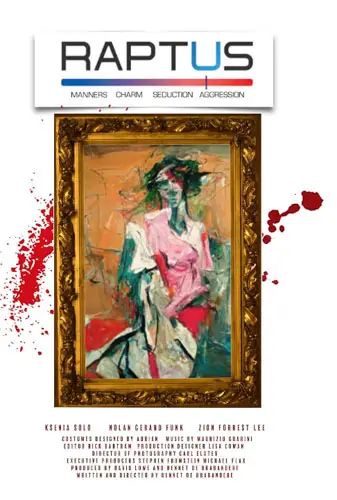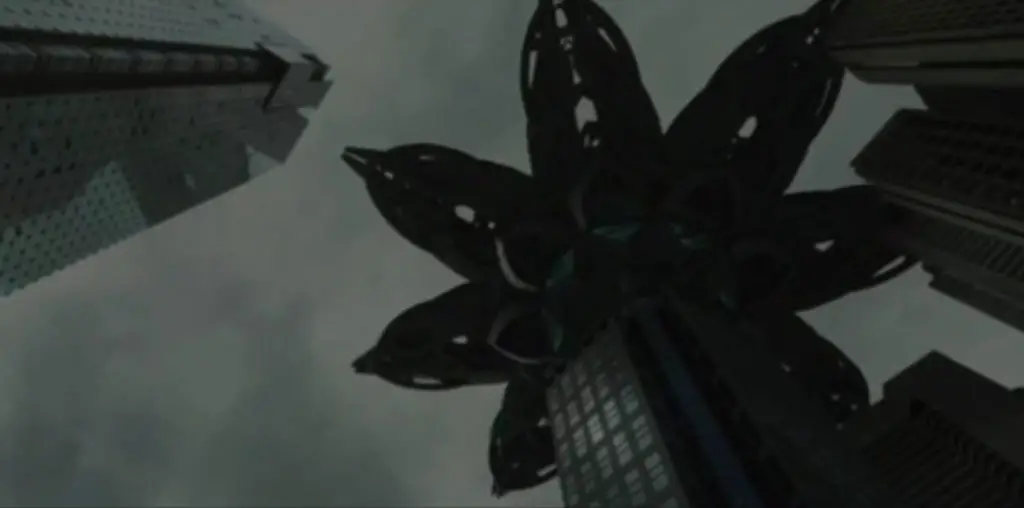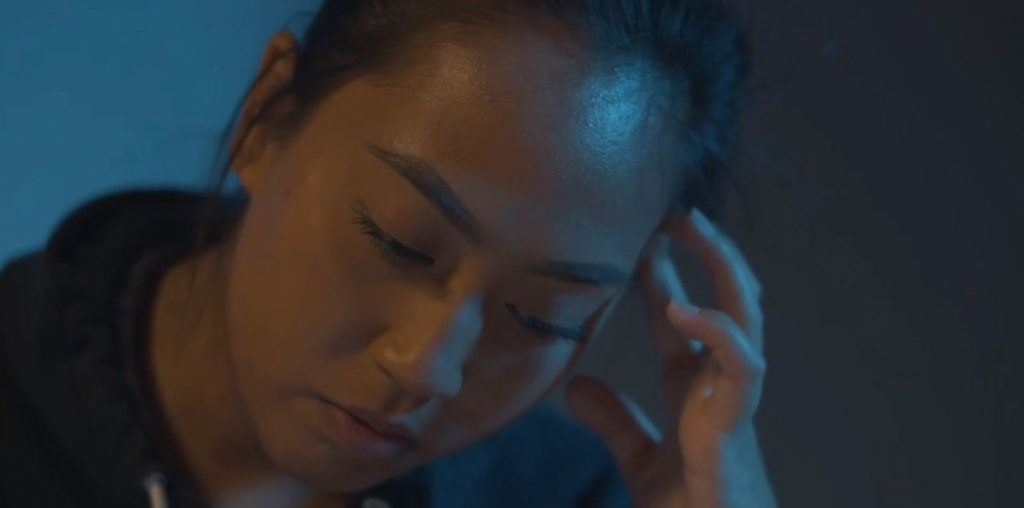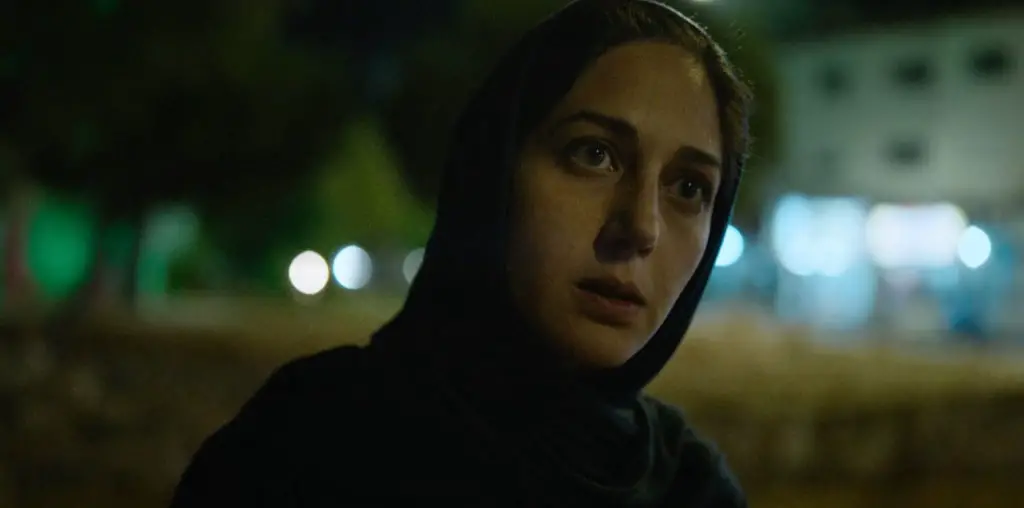
Bennet De Brabandere wrote and directed Raptus, which follows Sarah (Ksenia Solo) after a traumatic event. While out for a run one day, she’s attacked and sexually assaulted by an unknown man. Now, Sarah’s afraid to leave her house and only has contact with her assistant via texts, phone calls, and the like. Sarah is seeing a therapist, Dr. Peterson (Christina Cox), though she’s frustrated with how slow the recovery/healing process is taking.
To that end, the good doctor suggests a bold new form of immersion therapy. She tells Sarah to order an artificially intelligent companion, whose personality settings she can control, to confront a male head-on. Though a little reluctant, Sarah orders and receives Raptus (Nolan Gerard Funk), who is designed to cater to her desires and to learn what she wants. Unfortunately for Sarah, her robot’s aggression settings are set to 80, which doesn’t make her as uncomfortable as needed to deal with the rape as she wants. However, the consequences for breaking the preset perimeters are beyond anything Sarah could have imagined.
Raptus uses the broad outline of an A.I. goes awry story to examine how trauma affects people and whether one can ever truly heal. A few scenes are too on the nose, such as Raptus handily picking up the massive crate he was shipped or the line “…I can make you cum.” Still, the sheer intensity of what happened to Sarah is keenly felt in every scene after the attack. The reluctant way the lead instructs her house to open the door shows a woman who can barely function, much less interact with others. Sarah’s arc is compelling, mainly because the screenplay does an excellent job of not playing all its cards at once. The way the technician Murry (Zion Forrest Lee) is woven into the narrative, with his repairing of a damaged companion bot, allows the outside world to seep in.

“…tells Sarah to order an artificially intelligent companion, whose personality settings she can control…”
Brabandere confidently directs, using stark lighting and streamlined production design to sell the slightly futuristic setting. Again, a scene or two might be a little too goofy, but the director keeps the tension high. For instance, whether Murry is the assailant from the beginning or it is the suspect the cops have in custody is toyed with nicely. Sarah’s sexual desires, despite the horrible things that happened to her, are also felt and lead to a few shocking moments. But it is the last act that really puts a pin into what the filmmaker is saying about whether traumatic events should be lived with or killed off entirely and if something like that is even possible.
But what makes Raptus more than just another decently made but forgettable indie thriller is the skill of its cast. Leading lady Solo jumps through every imaginable emotion and makes each one believable. Funk is good-looking and oddly charismatic as a robot. One line reading near the end is unintentionally hilarious, but that aside, he delivers a performance that goes from fun to creepy quickly. Lee is sweet and endearing throughout, which makes the ambiguity of his true motivations all the better.
Raptus is a compelling little thriller with a great cast and an absolutely brilliant ending. Seriously, the last 20 or so minutes are white-knuckle-thrilling in the best way possible. Yes, a few scenes or lines feel too melodramatic or overwrought, but they don’t detract much from everything Brabandere and his cast and crew have accomplished.

"…white-knuckle-thrilling..."



Is there a release date set?
[…] Source link […]